Launch of IMF World Economic Outlook 2023
2023-10-30 IMI
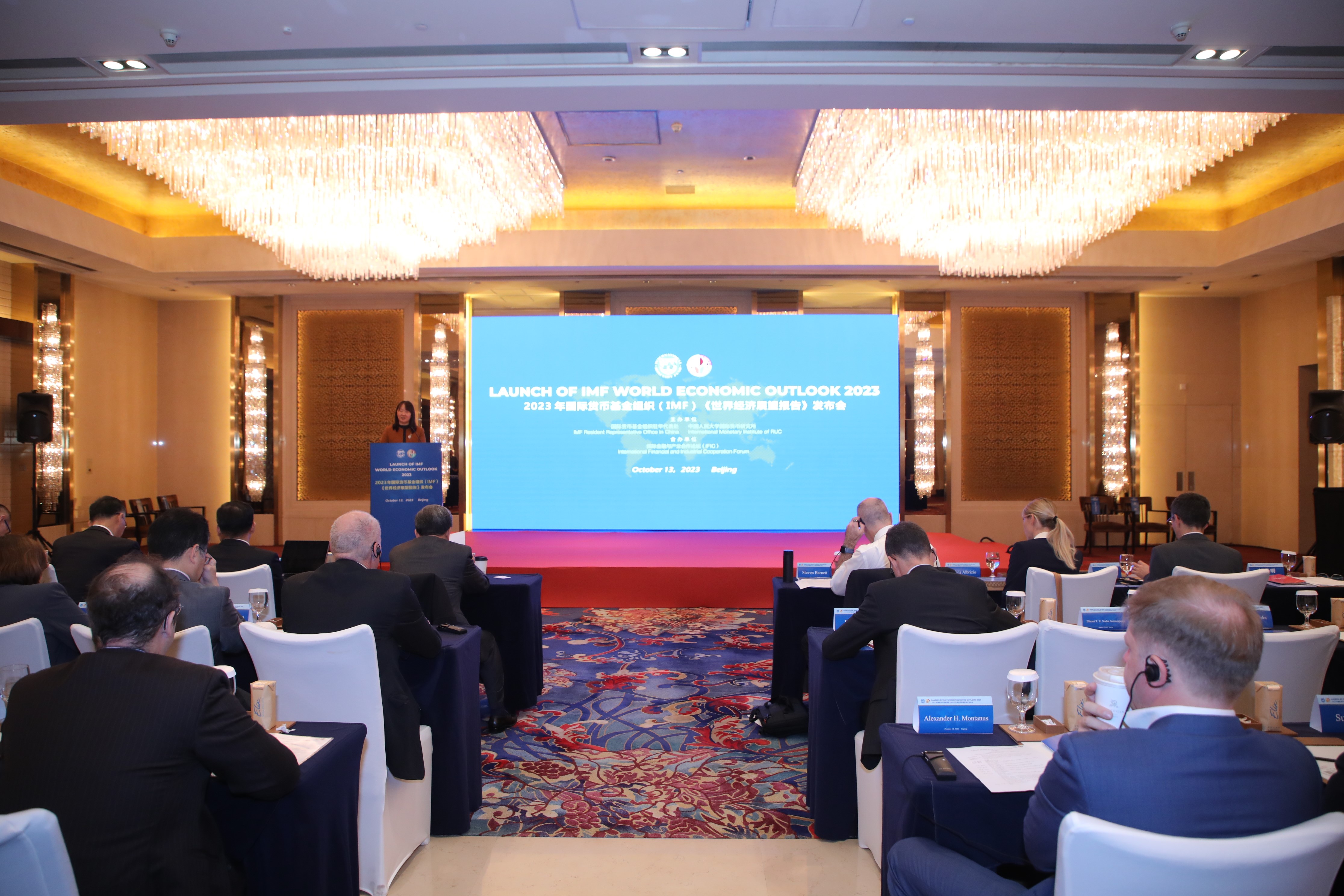
On the morning of October 13th, the "Launch of IMF World Economic Outlook 2023", jointly organized by the IMF Resident Representative Office in China and the International Monetary Institute (IMI) of Renmin University of China, and the International Financial and Industrial Cooperation Forum (IFIC), was held at China World Summit Wing in Beijing.
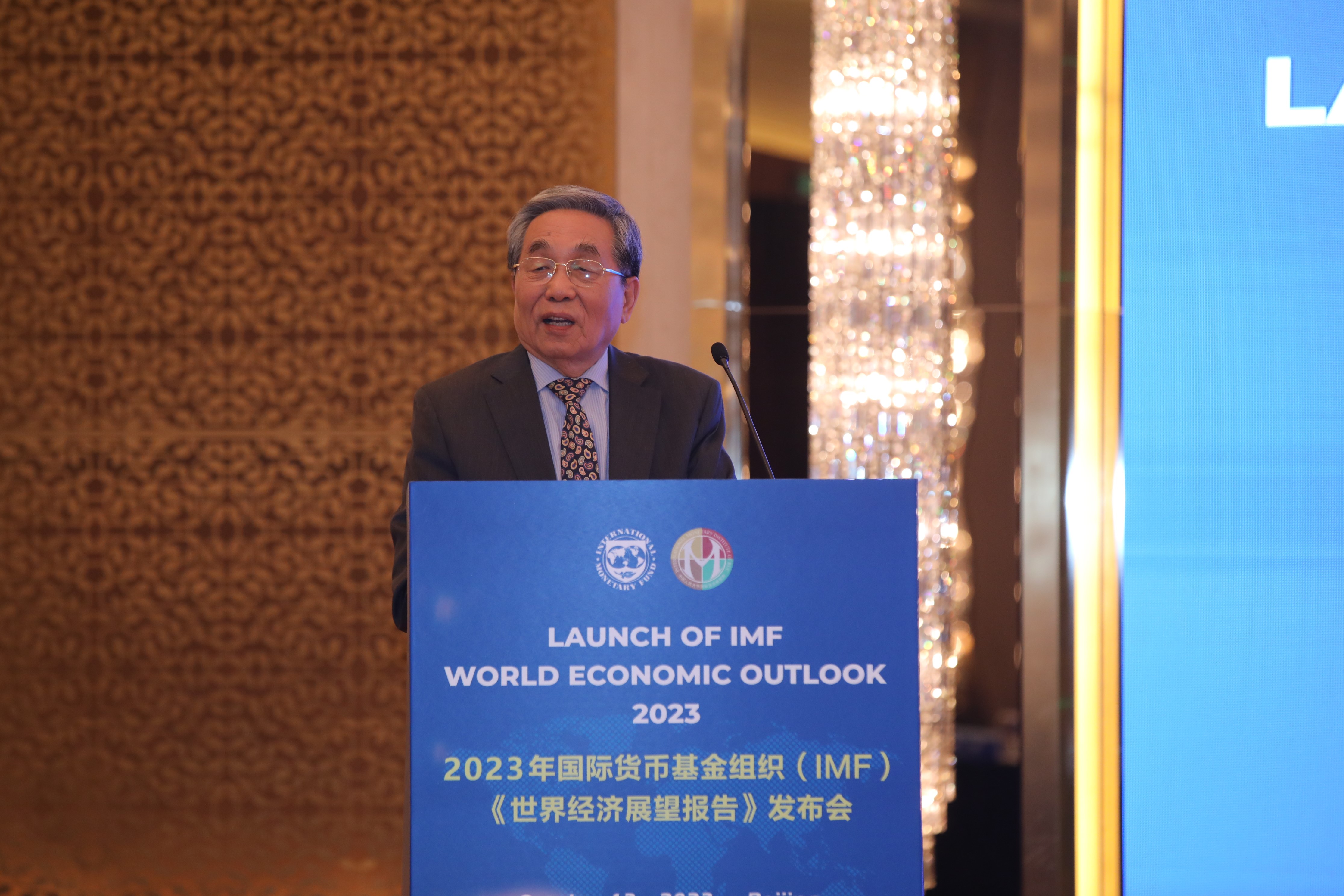
Steven Barnett, Senior Resident Representative of IMF in China, Silvia Albrizio and Mehdi Benatiya Andalousi, Economists of the IMF Research Department, Zhou Chengjun, Director of the Research Institute of the People's Bank of China, Zhao Xijun, Co Dean of the China Capital Market Research Institute at Renmin University of China, Wang Fang, Associate Dean of the School of Finance and Finance at Renmin University of China, and Deputy Director of IMI, Liu Hongwei, Secretary General of International Financial and Industrial Cooperation Forum (IFIC), Guo Biao, Assistant Dean of the National Institute of Finance at Renmin University of China, and other experts and scholars from financial management departments, research institutes, and financial institutions from around the world attended the meeting and delivered speeches. Dozens of media outlets participated in the coverage. The meeting was chaired by Zhang Zhixiang, former Director General of the International Department of the People's Bank of China and former Executive Director for China at IMF.
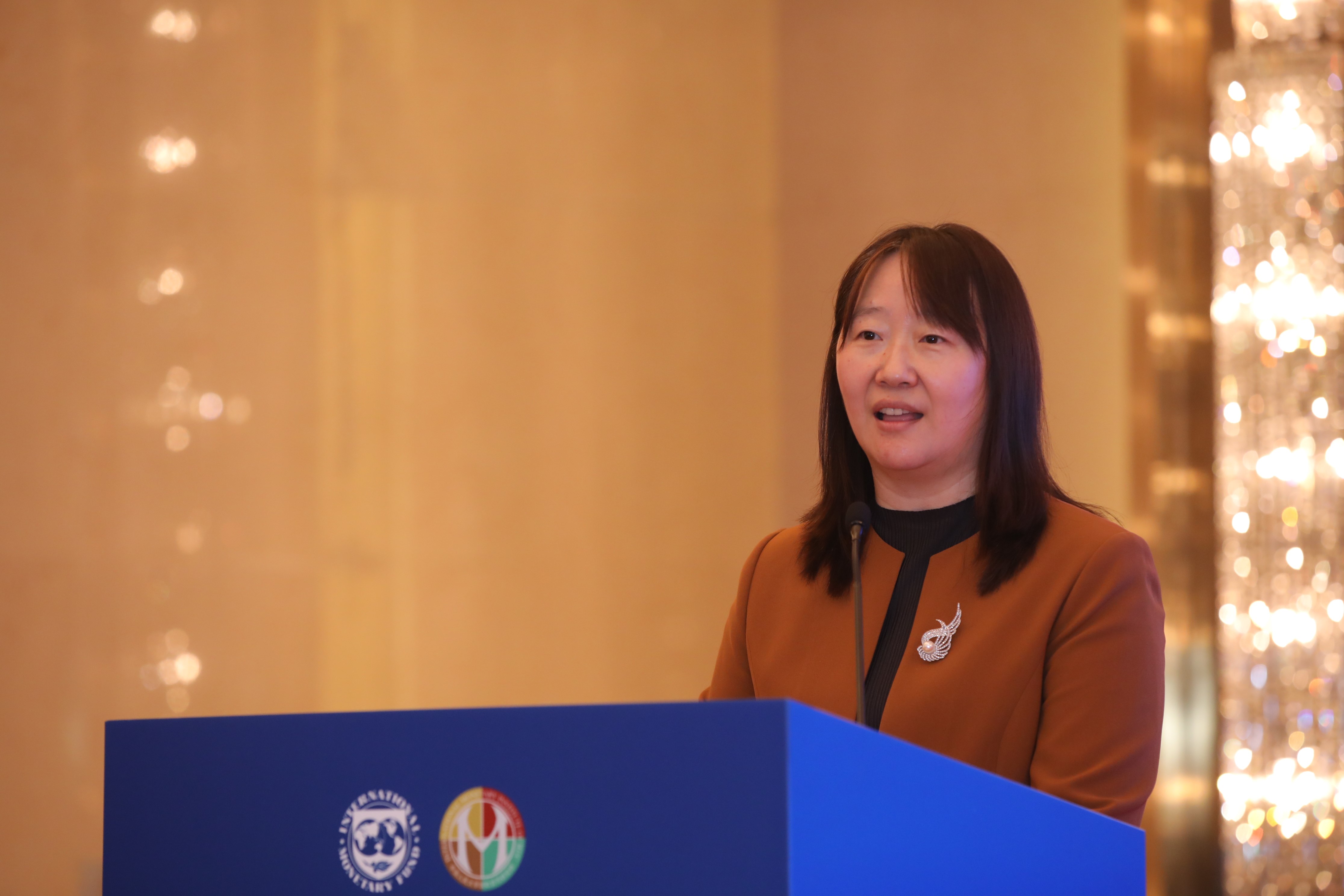
Mr. Steven Barnett first delivered a keynote speech. He pointed out that the world economy will be resilient in 2023, but there has been a widespread scarring effect in the post pandemic economy. He proposed that in the next two years, the world economy is expected to grow by 3% and 2.9% respectively, and China remains the largest engine of global economic growth, contributing one-third of global growth. The scarring effect is more pronounced in low-income developing countries after the pandemic, especially in the least developed countries, which have been affected the most, leaving permanent scars. The United States is the country with the fastest recovery among major economies, while China ranks on the average of the global scarring effect. In the medium term, the global economic growth rate is the lowest in decades.
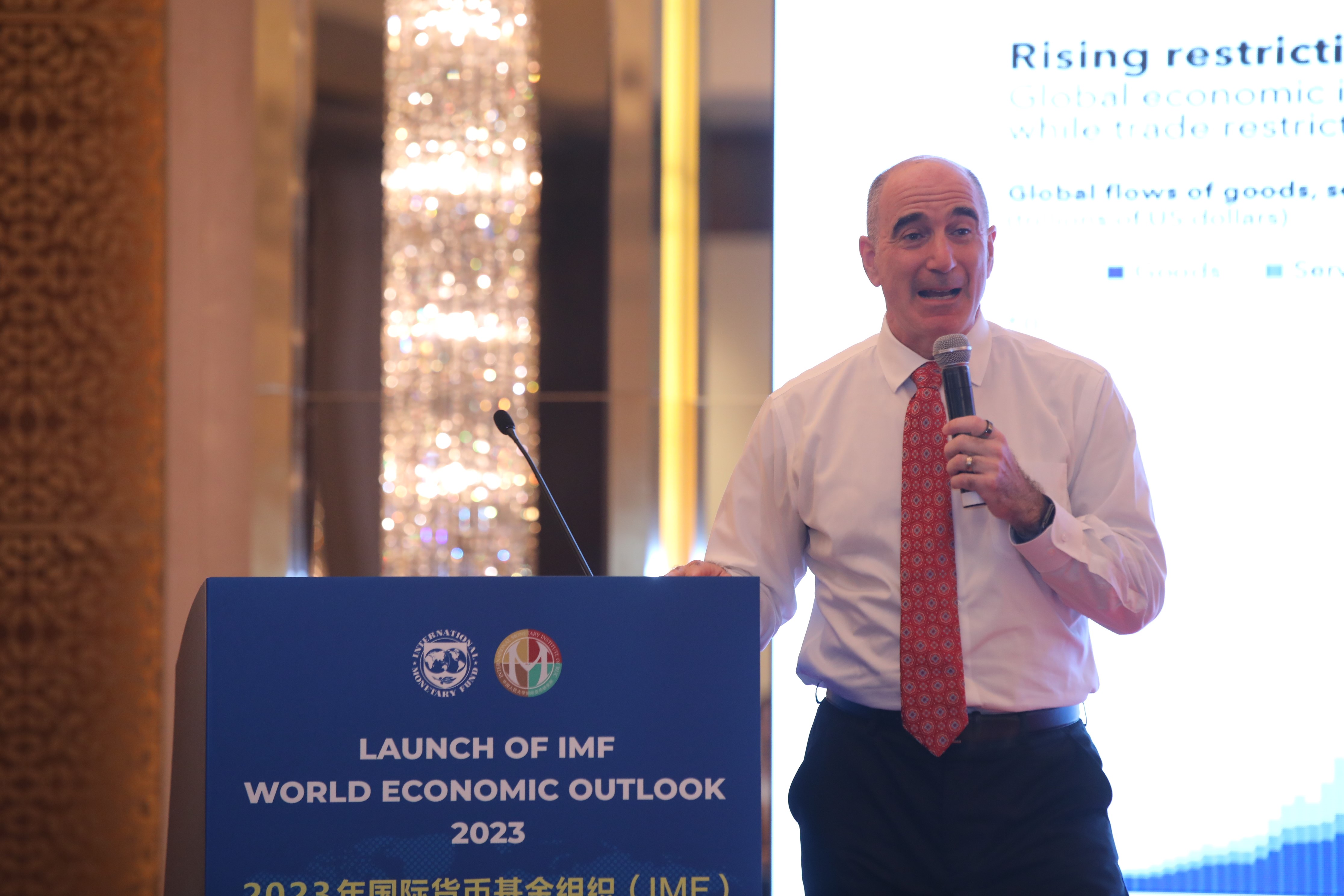
Secondly, he pointed out that the priority of monetary policy is to address inflation. Inflation has peaked in many countries, and a soft landing has been basically achieved without a recession, indicating that the global central bank policy response is still relatively appropriate. Unlike other countries, China's inflation has not increased significantly, but has remained at a relatively appropriate level. Other major economies currently have their highest interest rates, which may gradually ease. At the same time, the policy signal is also clear, but it is recommended that these countries' central banks do not withdraw their monetary policies too early.
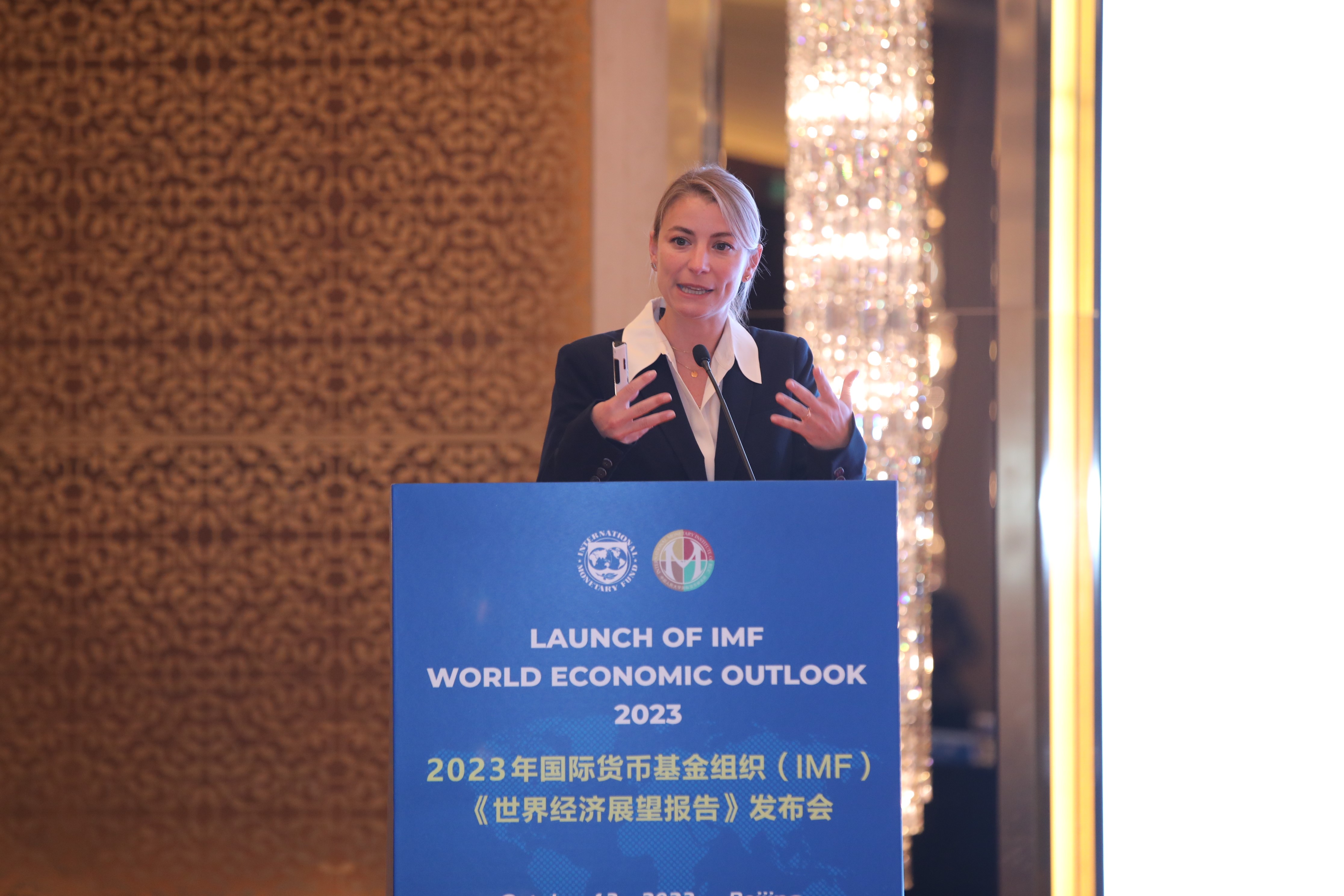
Next, Ms. Silvia Albrizio introduced the second chapter of the World Economic Outlook on inflation and monetary policy. She pointed out that the inflation rate of multiple economies around the world, excluding China, reached their highest levels in decades in 2022, especially the core inflation rate; And China's core inflation rate remains basically 0%. According to IMF forecasts, most countries will find it difficult to return to their inflation targets by 2025. Silvia Albrizio mainly explained the following three points: firstly, the recent performance of inflation expectations; Secondly, expectations are explaining inflation dynamics. The third is how inflation expectations affect the effectiveness of monetary policy and whether policy can in turn affect inflation expectations.
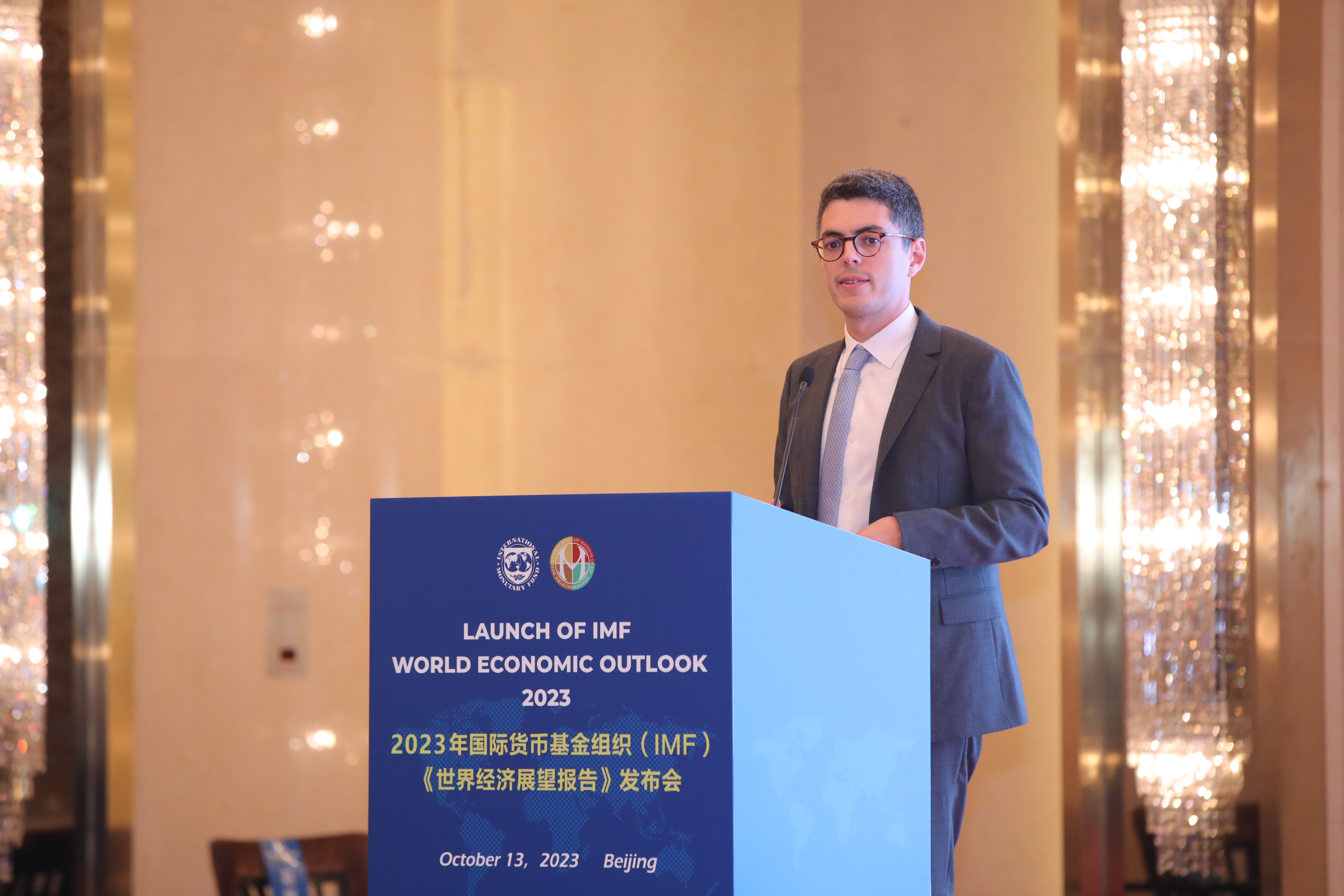
Mr. Mehdi Benatiya Andaloussi’s keynote speech on the impact of global market fragmentation on the world economy followed. He pointed out that because of the high concentration of natural resource endowment, commodities have the characteristics of high correlation with macroeconomic trends, difficult to replace, concentrated production, high trade share, and many countries are highly dependent on commodity imports, so the commodity market has become more fragile in the market fragmentation. The fragmentation of global commodity markets can lead to severe price volatility and an increase in global GDP imbalances, with low-income countries being the most affected due to their high dependence on agricultural trade. At the same time, market fragmentation would make the green transition more costly for countries. Therefore, countries around the world should, at a minimum, establish a food and minerals "corridor" through multilateral cooperation to safeguard food and the green transition; share data on key minerals; and respond to external risks by boosting domestic production, increasing the sources of commodities, diversifying the supply chain, and building up stockpiles where appropriate.
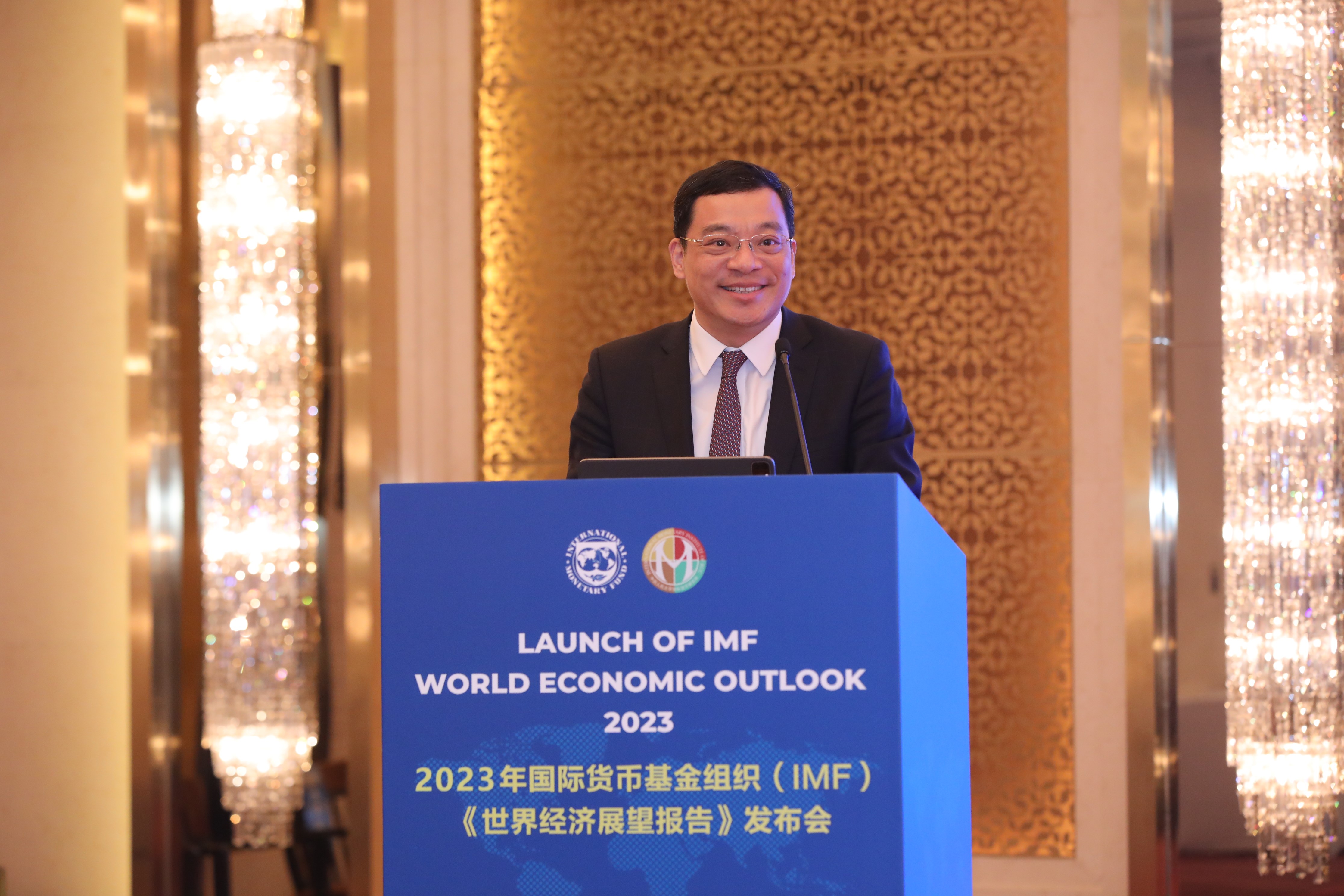
Afterwards, Mr. Zhou Chengjun analyzed three areas regarding the development of China's economy. He mentioned that he is cautiously optimistic about China's macroeconomy, and the key to maintaining this attitude lies in China's real estate market. The demand for housing improvement and urbanization in China will provide a very bright future for the real estate market, and the key lies in what policies are adopted to meet these demands. Secondly, Zhou analyzed the challenges of China's "dual carbon target" green transition in terms of the high correlation between carbon peaking and stable urbanization rates. Achieving the "double carbon target" requires not only focusing on the growth of urbanization rate, but also thinking about the question of where the peak of carbon is located. Finally, he emphasized the importance of the carbon market and green transition, analyzed the irrationality of the international tax on carbon emission allowances, and pointed out that it will take some time for the development of China's carbon market to mature, and that the international community should have more patience and confidence in China, and work together to optimize the allocation of resources.
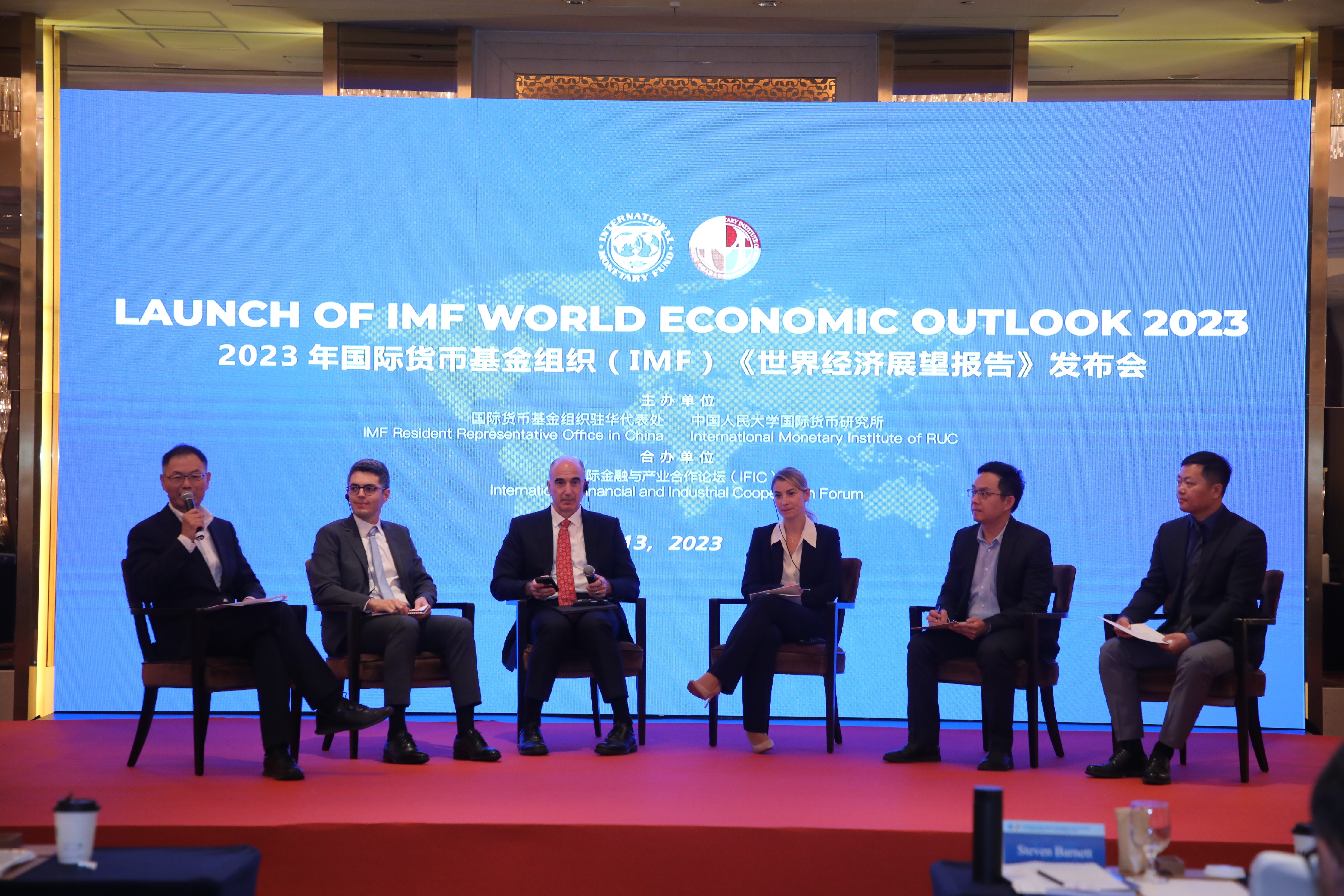
The subsequent panel discussion, moderated by Zhao Xijun, featured Steven Barnett, Silvia Albrizio, Mehdi Benatiya Andaloussi, Liu Hongwei and Guo Biao. Participants had a wide-ranging discussion on the issues mentioned in the keynote speech, such as scarring effect, inflation, medium- and long-term economic growth, and commodity market.
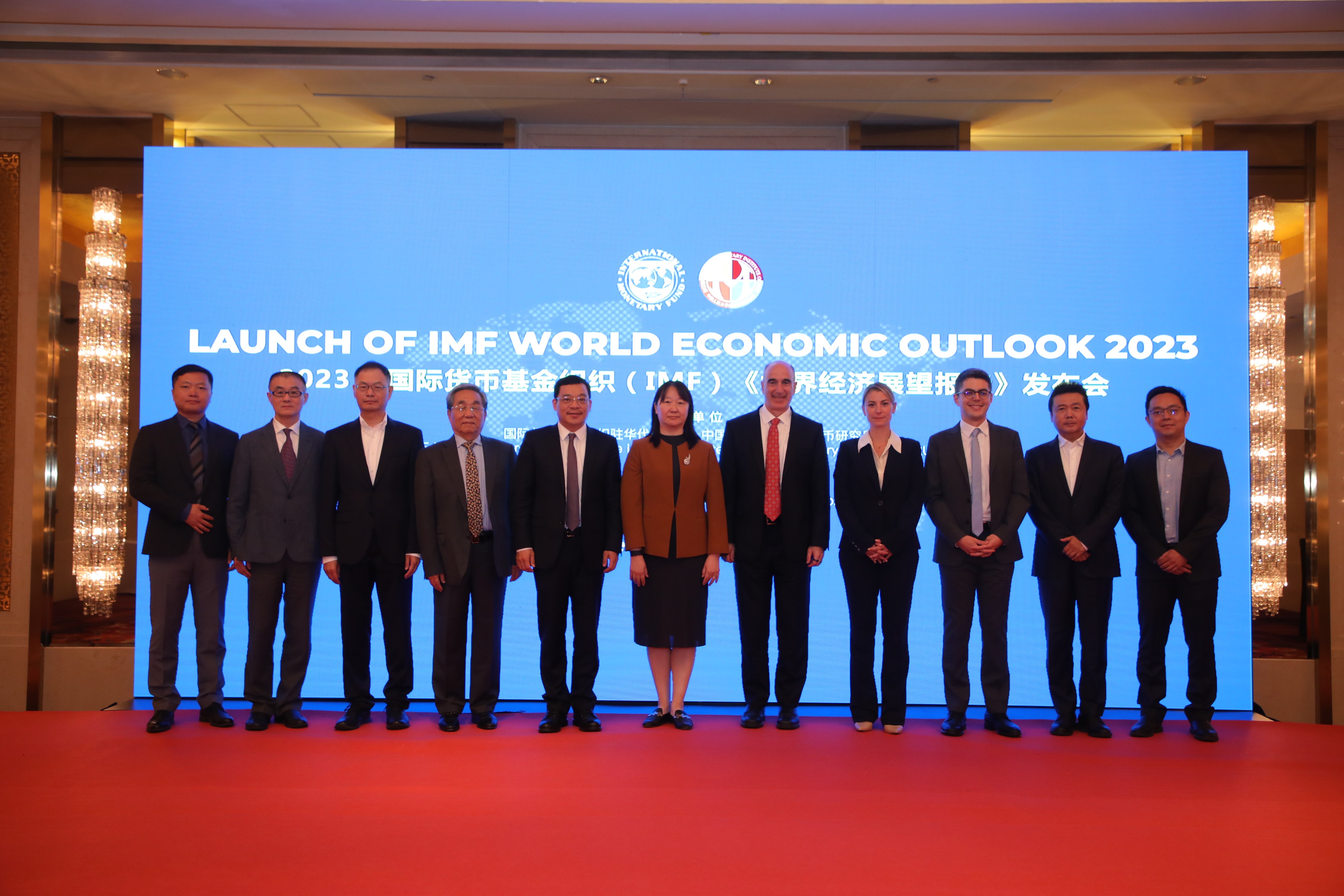
Translated by Feng Wenyi and Xie Sainan
